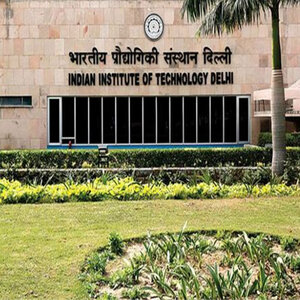NIT-Srinagar Students to Get Direct Admission to PhD at IIT-Delhi
 As a part of IIT-Delhi’s initiative to welcome meritorious students from NITs across the country, Students from the National Institute of Technology (NIT) Srinagar will get direct admission to PhD programme at the Indian Institute of Technology (IIT) Delhi.
As a part of IIT-Delhi’s initiative to welcome meritorious students from NITs across the country, Students from the National Institute of Technology (NIT) Srinagar will get direct admission to PhD programme at the Indian Institute of Technology (IIT) Delhi.
After the end of their sixth semester, NIT-Srinagar students with a CGPA of 8.00 will be entitled to apply for a project in summer or winter and complete their fourth year at IIT-Delhi. They will also be considered for an early admission to the IIT-Delhi PhD programmes. The requirement of GATE is waived off since the students will enter IIT-Delhi with a minimum CGPA of 8.00. This scheme will also help NIT-Srinagar students to enhance their chances of qualifying for the Prime Minister’s Research Fellowship for PhD at IIT-Delhi.
Students will go through a rigorous selection process, and subject to their continued excellence, will be considered for early admission to PhD programmes at IIT-Delhi. Meritorious students of NIT-Srinagar can now come to IIT-Delhi in their final year and continue for their PhD after their graduation.
During the stay of NIT-Srinagar students in IIT-Delhi as visiting students, they would not be charged any academic fees, since they will be paying the same to their parent institution. The students will also be provided on/ off-campus hostel accommodation on a paid basis during their one-year stay, the official said.
IIT-Delhi and NIT-Srinagar have signed an MoU for collaboration on academic and research activities in the areas of mutual interest including collaborative research works, joint supervision of PhD students, joint workshops, and seminars, and more.
Prof Rakesh Sehgal, director, NIT-Srinagar said, “This will augment the research facilities for our PG students, research scholars, and faculty. This collaborative effort will lead to a paradigm shift in finding novel and innovative solutions to the problems faced by the industry in the Union Territory of J&K in particular. This collaboration is in line with the National Education Policy (NEP 2020) and will help in the generation of new knowledge in the frontier areas of science and technology.”

